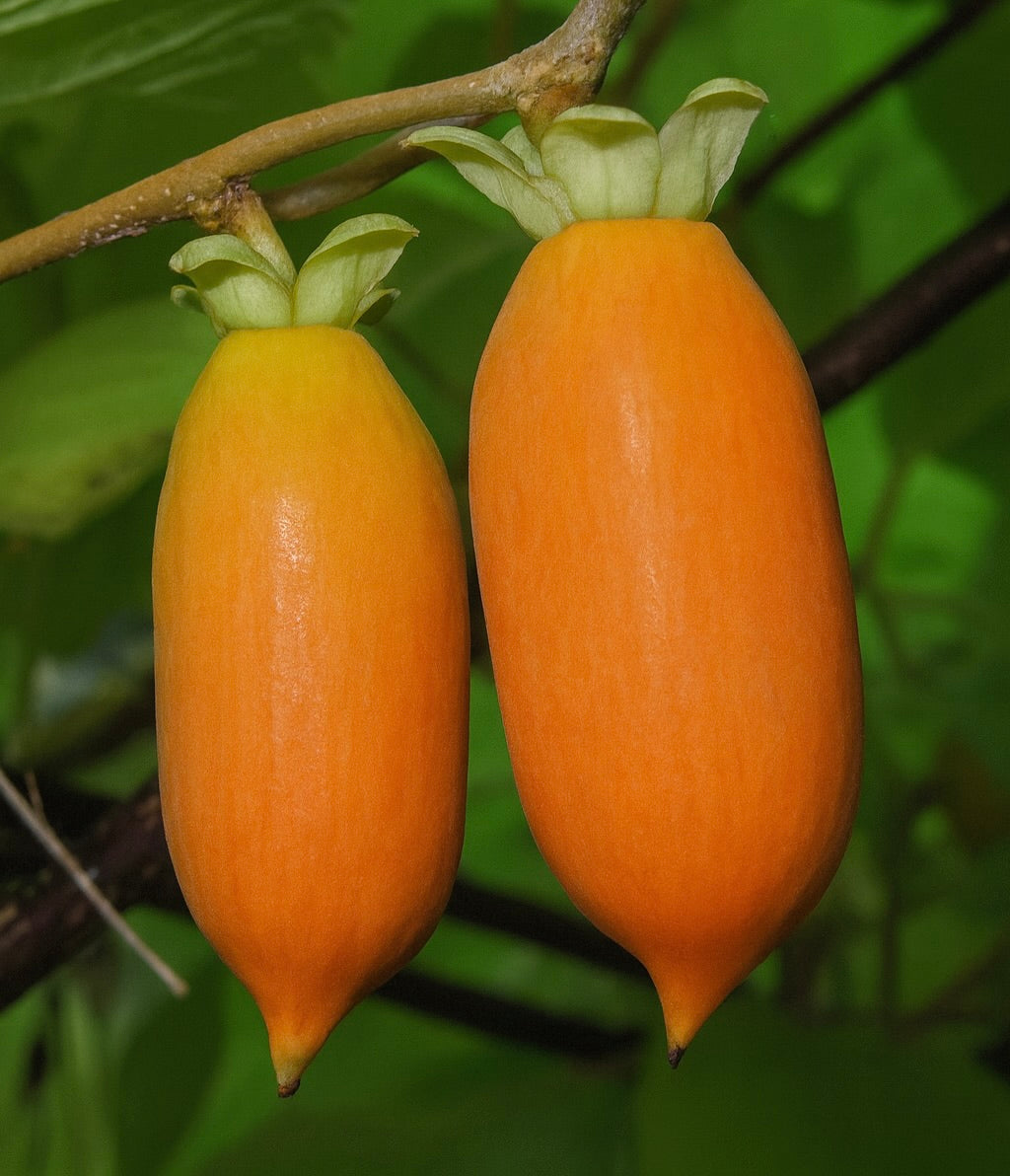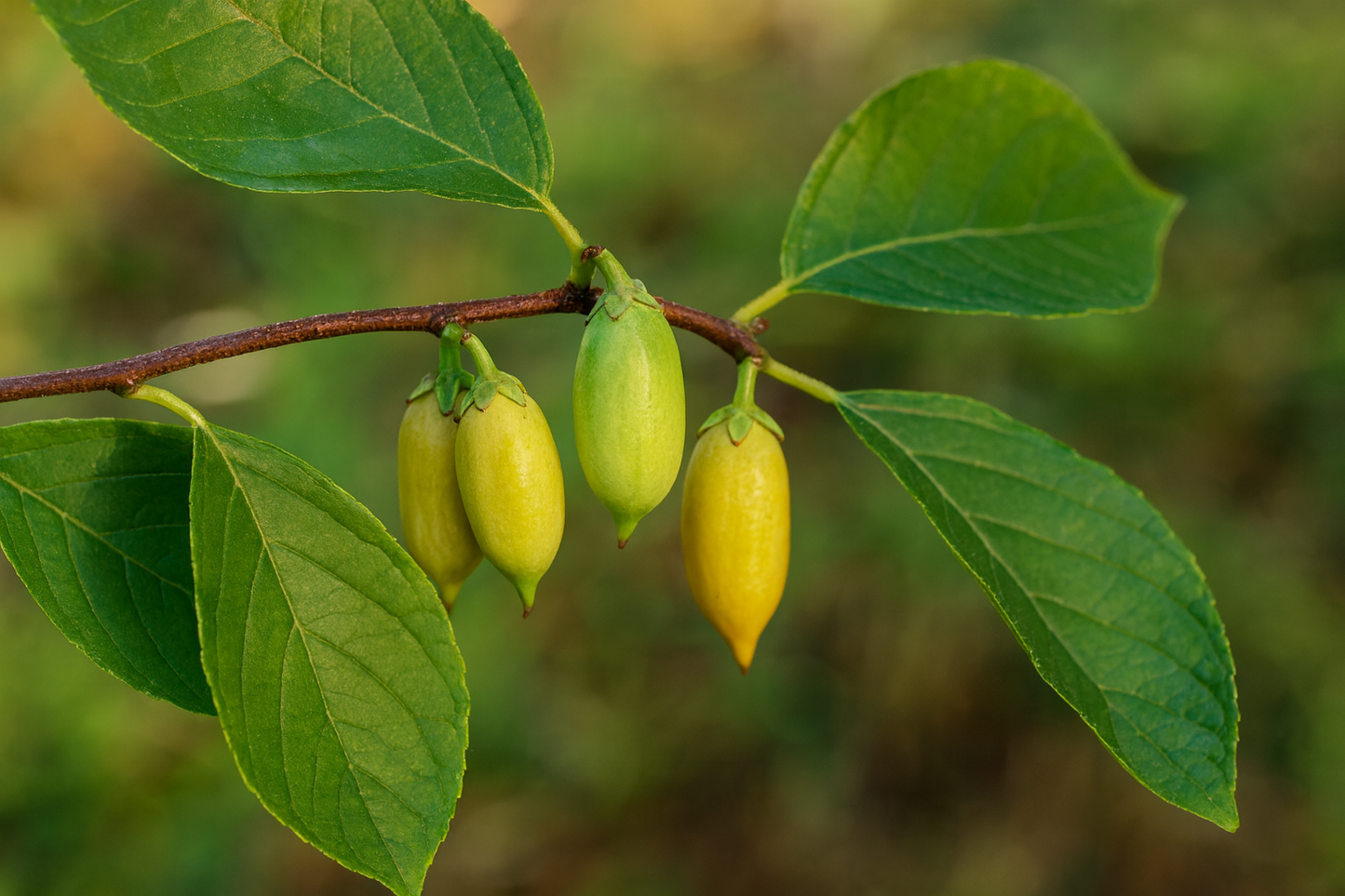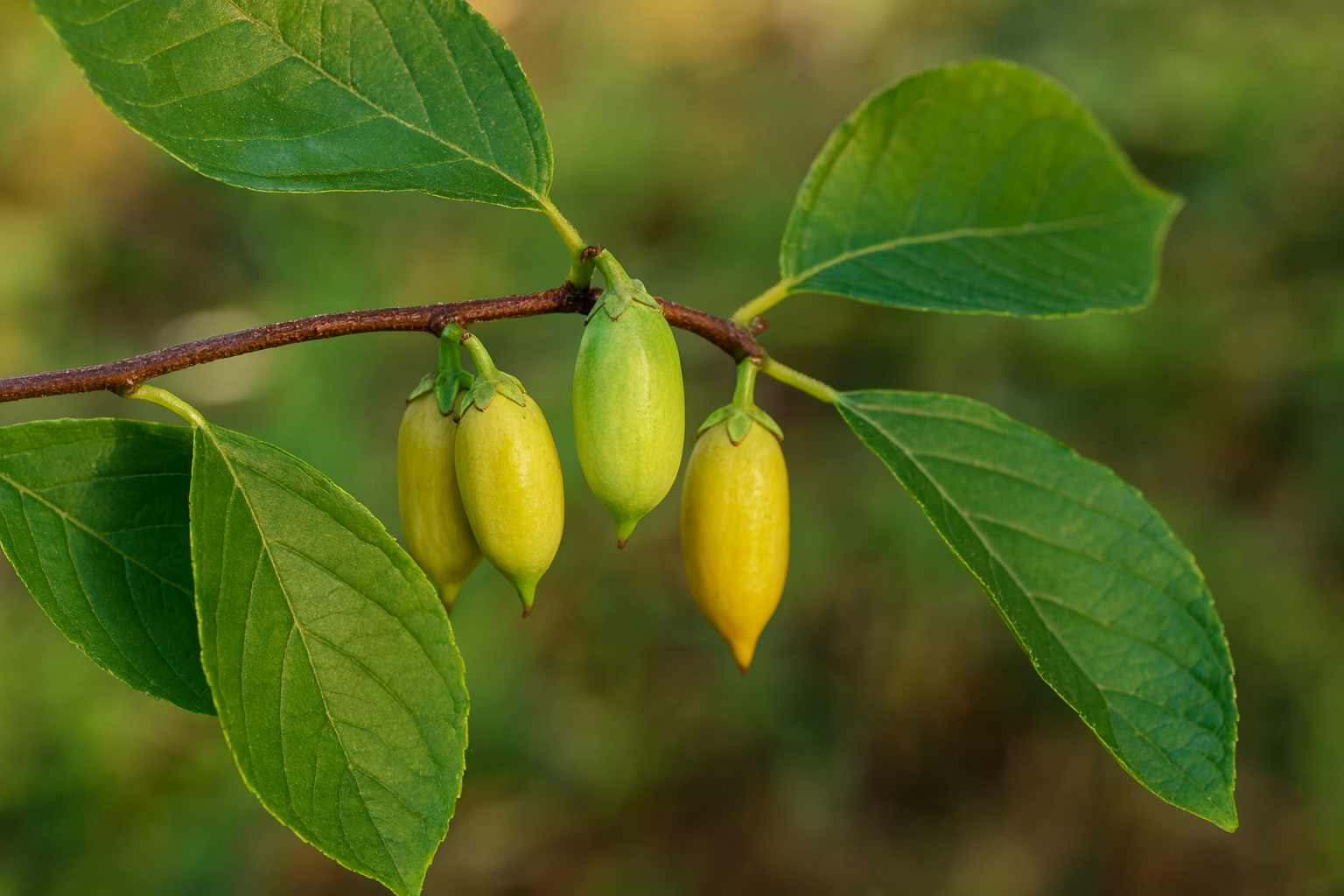West Coast Plants
'Hot Pepper'™ Silver Vine Kiwi (Female)
'Hot Pepper'™ Silver Vine Kiwi (Female)
Couldn't load pickup availability
Hot Pepper™ silver vine is a deciduous climbing vine noted for its unique, oblong fruit, which have a pronounced sweet and spicy flavour. Hot Pepper was bred in Russia and grows 10-15' long.
Silver vine (Actinidia polygama) is a vigorous perennial climbing vine native to the mountain forests of Japan, China, and Korea. Closely related to hardy kiwi, silver vine produces fruit that is often considered sweeter, with a distinctive tang and a hint of spice - they are often compared to a blend of sweet kiwi and mild chili or ginger.
In late summer to early fall, mature vines can yield 20–30 pounds of small, orange-gold fruit that hang in clusters and stand out beautifully against the foliage. Inside, the fruit look like orange kiwis. Outside, the fruit have thin, edible skin similar to hardy kiwis.
This species is extremely cold hardy, thriving from Zone 3 through 8, and is well suited to trellises, fences, or arbors.
Plants are either male or female and at least one of each is required for cross pollination and fruit set. We offer the female cultivars Hot Pepper™ and Vera's Pride™ and the male cultivar Pavel™. One male vine can pollinate up to 6-8 female vines.
Along with its productive harvests, silver vine has attractive silver-washed leaves and fragrant blossoms that draw in pollinators.
Combining ornamental beauty and generous yields of sweet fruit, silver vine is an excellent perennial vine for food gardens and food forests.
Common names: Hot Pepper™ Silver Vine, Female Silver Vine
Edible: Fruit
Harvest timing: September - October
Scientific name: Actinidia polygama '233-13'
Light requirements: Full sun
Full-grown size: 10-15' long
Hardiness: Zone 3
Pollination: Requires cross-pollination with a male silver vine, like Pavel™
Wildlife: Flowers attract pollinators, including native bees.
Origin: Native to Asia, including Japan, China and Korea.
Noteworthy: Very cold hardy. Unique fruit shape and sweet-spicy flavour.
Share




